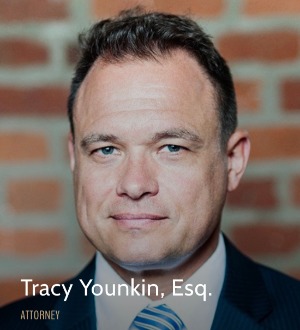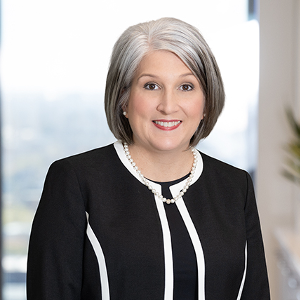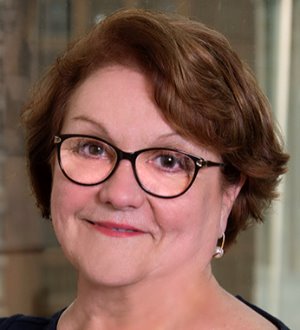By John M. Goralka
Sacramento, CA
A trust is a powerful estate planning tool, providing for the management and protection of your assets. Trusts come in many flavors or types depending upon the client’s goals and needs. The selection of your trustee or successor trustee will depend upon the type of trust and your goals and objectives.
Irrevocable trusts
Irrevocable trusts are generally used to attain certain income tax, estate tax or asset protection objectives. These trusts may use both an investment trustee to oversee trust investments and an administrative or distribution trustee to supervise other managed duties. This structure allows a client to retain control over trust assets, investment activities and accounts, while still benefiting from the desired asset protection or tax benefits, which typically would prevent you from being trustee.
Revocable trusts
This article will focus on the selection of the successor or trustee for revocable or living trusts. The successor trustee of your living or revocable trust steps in to act if you are no longer able to do so due to your death or mental incapacity.
Perhaps the most important decision that you need to make is who will handle your financial affairs if you are unable to do so due to death or incapacity. You may decide to use a different person in the event of your incapacity than in the event of your death.
For example, if you are leaving your estate to your son Joe at your death, he may be the most appropriate successor at your death for that reason. However, you may not feel as comfortable with Joe overseeing your affairs while you are still living. He may live farther away, in another state or country. Someone other than Joe may be more appropriate if you are incapacitated.
The individual(s) or entity that you choose to act as successor trustee will have substantial responsibilities that can have a material effect on the operation of your trust and the welfare of your beneficiaries. In choosing a successor trustee, you should consider his or her role and duties.
The role of the successor trustee
The successor trustee typically steps in to act when you are not able to do so because of illness or death as described above. The successor trustee’s role and duties often include:
- Identifying and protecting trust assets
- Paying your bills and overseeing your finances
- Managing investments or making investment decisions
- Managing trusts or sub-trusts for minors and other beneficiaries not ready or capable of managing an inheritance
- Filing tax returns, making tax elections and resolving legal and financial issues related to the trust or its beneficiaries
Consider the family dynamics
Very often an adult child or sibling is chosen to act as the successor trustee. This is often an excellent choice. In many cases, the trust estate is going to your children and the successor trustee is simply dividing the assets at death (equally or in some other way set forth in the trust) so there is little to cause conflict. However, one red flag to consider is where a share or distribution is being held back because of the beneficiary’s age, financial maturity, drug, alcohol or gambling problems or for some other reason. Trustee distributions or actions then become discretionary.
In that case, ask yourself: Do the proposed successor trustee and beneficiary get along? Is there any emotional baggage (sibling rivalry) that may impede the successor trustee’s independent decision-making process? Does the successor trustee have the emotional fortitude to say “no” to the beneficiary’s request? Will saying “no” affect the ongoing relationship between them? What will Christmas or other family gatherings be like if the successor trustee turns down a request? A professional or corporate trustee for at least that portion of the trust administration may be more appropriate.
Consider the personality and character of the successor trustee
- Honest and trustworthy. One primary advantage of a trust is that there is no requirement for court supervision. However, that also means there may be little trustee oversight. The successor trustee will have access to your assets. You should believe and have confidence that he or she will act in the best interest of you and your beneficiaries.
- Organized, with attention to detail. The successor trustee’s duties include a great deal of paperwork, managing timelines and ensuring compliance with a variety of legal and tax reporting requirements. Choose a successor trustee who is detail-oriented, organized and can complete his or her duties.
- Communication skills. Perhaps the greatest cause of trust disputes or litigation is the failure to communicate. Few beneficiaries are aware of the steps involved and the complexity of even a simple trust administration. Most are very anxious to receive their share, and a perceived extended silence engenders suspicion and fear in the minds of the beneficiaries. The successor trustee must communicate with the beneficiaries in a transparent manner to avoid concerns or worries. The successor trustee will also communicate with the lawyer, accountant and sometimes even the court. Strong communication skills are critical to avoid disputes and provide for smooth trust administration.
- Financial experience or familiarity. The successor trustee can hire professionals to assist with all aspects of the trust administration. Therefore, the successor trustee does not have to be a financial expert. However, the successor trustee should have a general understanding of financial matters and be comfortable working with accountants, financial advisers and other professionals.
- Time commitment and thankless job. Acting as a successor trustee can be very time-consuming, particularly after a death which involves the decedent’s individual tax return, the fiduciary or trust income tax return, distribution of assets and many other requirements. The successor trustee needs to be able to devote the time needed to complete the trust administration. While a successor trustee can delegate duties to others, the successor trustee cannot delegate liabilities. The successor trustee remains liable for damages or losses by those to whom responsibilities are delegated.
Personal trustee, professional trustee or family office?
As discussed above, a personal trustee, such as a friend or family member, may often be appropriate. But considering the potential red flag discussed above, maybe a different route would be better for you.
- Banks often have trust departments and are willing to act as the successor trustee. However, banks often have restrictions on the services provided and on the assets accepted. Many banks will not be willing to be involved with any form of medical decisions. In addition, many banks will not accept real property or certain types of real property, such as farmland, commercial income-producing properties or single-family residences. Banks will often convert investments into bank investment products and may even charge a transaction fee to do so.
- Private fiduciaries are also available, which would enable the family to continue with the same financial adviser and investments desired.
- Family office services could be helpful for high-net-worth clients. The family office is a combination of legal, tax, financial and insurance professionals working together to provide the best possible result for the client based upon the client’s unique goals and objectives. Through a family office a client might access a much wider array of investment opportunities for greater protection from loss and/or greater potential gain. Many little-known tax and financial opportunities may be available.
























